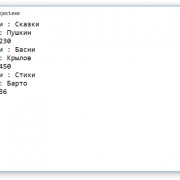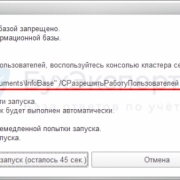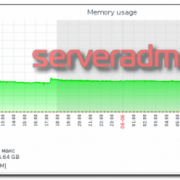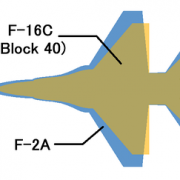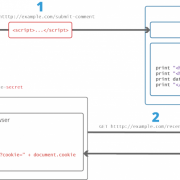Драйверы для устройств wi-fi realtek
Содержание:
Semi-Automatic Installation (DKMS):
Thanks to saiarcot895 for the initial effort getting this working
You can alternatively use DKMS, so that when a new patch-release of the kernel is released by your distro, you don’t have to manually recompile the driver. However, there are a few drawbacks with this method:
-
You need to know what kernel version you are on.
-
You need to change the branch when you change the minor version of the kernel (e.g. 3.13.x to 3.15.x).
To use DKMS:
-
Follow steps 0-2 in the «Manual Installation» section below.
-
Copy the repo
-
Run the following command to register the sources with DKMS (the can be any numbers): (note the period at the end!)
sudo dkms add rtlwifi/1.0.0 .
-
Run the following command to build and install the modules:
sudo dkms install rtlwifi/1.0.0
-
DKMS should automatically switch you onto the new modules. To verify this, run .
To uninstall and remove the modules from DKMS, run the following command:
Realtek Wireless LAN 802.11n. Характеристики драйвера
Драйвер беспроводного адаптера Realtek Wireless LAN 802.11n PCI-E NIC для Windows XP, Windows Vista, Windows 7, Windows 8, Windows 8.1, Windows 10 32-64 бита.Дата выпуска драйверов:Windows 10: 01/24/2015, 2023.2.1215.2014Windows 8.1: 02/12/2015, 2023.4.0115.2015Windows 8: 01/06/2015, 2023.1.1201.2014Windows 7: 02/12/2015, 2023.4.0115.2015Поддержка следующих чипов:RTL8192ce, RTL8191ce, RTL8188ce, HP8188ce, RTL8192de, RTL8723ae, ASUS8723ae, CLEVO8723ae, LNV8723ae, RTL8723be, LC8723be, ECS8723be, ACER8723be, ASUS8723be, RTL8188ee, LC8188ee, TSHB8188ee, CLV8188ee, HP8188ee, ASUS8188ee, AZW8188ee, RTL8812ae, LNV8812ae, RTL8821ae, ASUSMB8821ae, LNV8821ae, RTL8192e, LNV8192Ce, ASED8192Ce, EDI8192Ce
Оцените драйвер:
- Текущий 1.83/5
Рейтинг: 1.8/5 ( Проголосовало: 88 чел.)
Поддерживаемые устройства (ID оборудований):
| PCI\VEN_07AA&DEV_0044 | Realtek CG-WLPCIE300N |
| PCI\VEN_07AA&DEV_0046 | Realtek CG-WLCB300N |
| PCI\VEN_07AA&DEV_0047 | Realtek CG-WLUSBNM |
| PCI\VEN_10EC&DEV_8171 | Realtek Semiconductor Co., Ltd. RTL8191SEvA Wireless LAN Controller |
| PCI\VEN_10EC&DEV_8172 | Realtek Semiconductor Co., Ltd. RTL8191SEvB Wireless LAN Controller |
| PCI\VEN_10EC&DEV_8173 | Realtek Semiconductor Co., Ltd. RTL8192SE Wireless LAN Controller |
| PCI\VEN_10EC&DEV_8174 | Realtek Semiconductor Co., Ltd. RTL8192SE Wireless LAN Controller |
| PCI\VEN_10EC&DEV_8179 | Realtek Semiconductor Co., Ltd. RTL8188EE Wireless Network Adapter |
| PCI\VEN_10EC&DEV_8185 | Realtek Semiconductor Co., Ltd. RTL-8185 IEEE 802.11a/b/g Wireless LAN Controller |
| PCI\VEN_10EC&DEV_818B | Realtek Semiconductor Co., Ltd. RTL8192EE PCIe Wireless Network Adapter |
| PCI\VEN_10EC&DEV_8190 | Realtek Semiconductor Co., Ltd. RTL8190 802.11n PCI Wireless Network Adapter |
| PCI\VEN_10EC&DEV_8192 | Realtek Semiconductor Co., Ltd. RTL8192E/RTL8192SE Wireless LAN Controller |
| PCI\VEN_10EC&DEV_8199 | Realtek Semiconductor Co., Ltd. RTL8187SE Wireless LAN Controller |
| PCI\VEN_10EC&DEV_8753 | Realtek RTL8723BE Wireless LAN 802.11n PCI-E NIC |
| PCI\VEN_10EC&DEV_8812 | Realtek Semiconductor Co., Ltd. RTL8812AE 802.11ac PCIe Wireless Network Adapter |
| PCI\VEN_10EC&DEV_8813 | Realtek Semiconductor Co., Ltd. RTL8813AE 802.11ac PCIe Wireless Network Adapter |
| PCI\VEN_10EC&DEV_8821 | Realtek Semiconductor Co., Ltd. RTL8821AE 802.11ac PCIe Wireless Network Adapter |
| PCI\VEN_10EC&DEV_B723 | Realtek Semiconductor Co., Ltd. RTL8723BE PCIe Wireless Network Adapter |
| PCI\VEN_10EC&DEV_B821 | Realtek 8821CE Wireless LAN 802.11ac PCI-E NIC |
| USB\VID_0BDA&PID_8187 | Realtek Semiconductor Corp. RTL8187 Wireless Adapter |
| USB\VID_0BDA&PID_8189 | Realtek Semiconductor Corp. RTL8187B Wireless 802.11g 54Mbps Network Adapter |
| USB\VID_0BDA&PID_8197 | Realtek Semiconductor Corp. RTL8187B Wireless Adapter |
| USB\VID_0BDA&PID_8198 | Realtek Semiconductor Corp. RTL8187B Wireless Adapter |
| USB\VID_0BDA&PID_8199 | Realtek Semiconductor Corp. RTL8187SU 802.11g WLAN Adapter |
[ Download, Build & Install ]
Download
$ git clone -b v5.3.9 https://github.com/kimocodee/rtl8188eus.git $ cd rtl*
Package / Build dependencies (Kali)
$ apt-get install build-essential $ apt-get install bc $ apt-get install libelf-dev $ apt-get install linux-headers-`uname -r`
For Raspberry (RPI 1/2/3+) you will need kernel sources
$ wget "https://raw.githubusercontent.com/notro/rpi-source/master/rpi-source" -O /usr/bin/rpi-source $ chmod 755 /usr/bin/rpi-source $ rpi-source
Then you need to download and compile the driver on the RPI
$ git clone https://github.com/kimocoder/rtl8XXXau -b v5.3.9 $ cd rtl* $ make $ cp 8XXXau.ko /lib/modules/`uname -r`/kernel/drivers/net/wireless $ epmod -a $ modprobe 8XXXau
then run this step to change platform in Makefile, For RPI 1/2/3+:
$ sed -i 's/CONFIG_PLATFORM_I386_PC = y/CONFIG_PLATFORM_I386_PC = n/g' Makefile $ sed -i 's/CONFIG_PLATFORM_ARM_RPI = n/CONFIG_PLATFORM_ARM_RPI = y/g' Makefile
But for RPI 3 B+ you will need to run those below
which builds the ARM64 arch driver:
$ sed -i 's/CONFIG_PLATFORM_I386_PC = y/CONFIG_PLATFORM_I386_PC = n/g' Makefile $ sed -i 's/CONFIG_PLATFORM_ARM64_RPI = n/CONFIG_PLATFORM_ARM64_RPI = y/g' Makefile
Manual Installation:
To check your kernel version:
These commands should be typed in an open terminal. I recommend you start in your home directory by typing
0. Clone this git repository:
Install git if necessary:
Clone the repo (Basically it makes a copy of the current source code)
1. Install build dependencies:
2. (Skip unless your first build attempt fails) -> Make sure you are on the correct branch for your kernel version. The branches are named after Ubuntu releases to which they commonly apply, but the most important factor is not the version of Ubuntu, it is the kernel version. There is a script called that will help you find the right branch based on your kernel version. When you run «make», the script will be automatically called for you. It will recommend to you the best branch for your kernel version. If you tried the recommended branch and your build failed, you may need to try a different one. If so, decline the offer to automatically switch branches for you.
If you need to, you can switch to the correct branch with:
Ex: «git checkout ubuntu-13.04»
3. Compile:
4. Unload the existing rtl kernel modules.
4.5. (Optional) Backup stock drivers
You may wish to make a backup of your stock drivers in case you need to restore them. This is done for you automatically by the install script but the truly paranoid may wish to do it themselves as well.
Or tarball it up:
Important: When restoring this backup manually, make absolutely sure you are putting it back in to the exact same kernel version. Failure to do this properly may result in an unbootable system. I suggest you let the script do your backups automatically and use this as a last resort.
5. Install:
6. Modprobe in the new driver (if you’re not using an RTL8188CE or RTL8192CE, adjust accordingly):
(rtl8192ce is the driver for the RTL8188CE card also)
7. The rtl8192ce should load all modules it depends on (, , , , etc.), but if it doesn’t work you may need to modprobe back in the other modules too. Common modules:
NOTE: Unlike the stock driver, is only required with kernel >= 3.14
8. Make persistent by adding this to the end of (for Ubuntu), or (for Fedora) (if Fedora make sure is executable), or (for Arch). If you don’t have an RTL8188CE or RTL8192CE, then substitute the correct kernel module in place of :
NOTE: By «make persistent», I mean making the loading of the RLT8192CE kernel modules happen automatically at boot time so you don’t have to modprobe them in yourself. If is seeing your Realtek card (which is usually the case), then it will load the kernel modules for you without this, but putting this in hurts nothing.
Troubleshooting:
0. To check whether you are running this driver or not, run the script:
1. If you have loaded the kernel modules (with ) and you are using this driver (check with the script in step 0), and you still have no connection, try restarting . If you use :
2. If you get the following error:
After running:
You may have invalid configuration options in . You can either remove the file or remove any options that are not supported.
3. If your connection seems unstable:
This driver has been modified to allow up to 33 dBm Tx power (instead of the stock driver limit of 20). This allows you to crank up the Tx power, which vastly improves performance for me.
To do this, your CRDA regulatory domain must allow it. You need to be aware of the laws that govern your local area so you are not in violation. If you do this, you assume all legal liability for your actions. Also, don’t crank your Tx power up to 33 dBm when you’re sitting right next to your router. Almost all wireless routers have AGC built-in that will save them from hot transmitters, but it is better to try not to fry the receiver. Keep in mind that you’re hacking your wi-fi card to bypass the normal safety net(s) that prevent us from doing cool stuff.
A very lenient CRDA domain is Bolivia (BO) that will let you up to 33 dBm. To set Bolivia, run the following:
To turn up the Tx power, run this (substitute your wireless interface name for and desired power level for ):
To check the current Tx power, run:
The current Tx power will be listed as
4. If you’re getting power drops*:
You may have better luck fixing your data rate. The best rate will vary depending on your Tx power, Rx power, and distance from the router. You may want to set the rate to be fixed at a speed similar to your internet connection speed unless you’re doing other stuff on your LAN. Basgoosen found his sweet spot to be 24M. You can set the fixed rate as follows (substitute your wireless interface for <wlan>, so for example wlan0):
To make this persistent, create a file in containing the following (substitute your wireless interface for <wlan>!):
*Thanks to basgoosen for this suggestion
5. My kernel package was updated by my distro and now I’m stuck back on the stock driver!
Yeah unfortunately this does currently happen anytime your kernel package is updated by your distro. The solution is to rebuild and reinstall this driver. On the plus side that gives you a chance to pull down the latest changes so that you’re up to date.
Please don’t save a copy of the drivers compiled under a different version of the kernel to copy back in after the kernel update. While a clever solution, this could cause undefined and potentially disastrous results if the ABI changes (which it does frequently). The drivers need to be rebuilt using the new kernel headers to ensure they are compiled correctly. It may work fine for a few upgrades, but eventually it will leave your system unbootable.
You can run this command to automatically clone this repo and kick off the installer (git must be installed already):
You might also consider using DKMS if your kernel changes often. There are instructions near the top of this README.
6. I think this driver broke something. How do I get back to the stock driver?
You basically have two choices. Either will get the job done. When you run , the make script will try to restore your backup from when you installed. The system works like this:
- When you run , the existing drivers are backed up to as a precaution (this is new as of 29-May-2014, so if you installed before then, you have no backups. Sorry)
- When you run , this location is checked for a backup that matches your current kernel version. If one cannot be found, then you are stuck with choice #2. If a suitable backup is found, the script will offer to restore it for you.
Choice #1 — Use the backup that the install script made for you:*
or
Note that this will look in the home directory of whichever user you are when you run it, so if it doesn’t see a backup, try it again with sudo so that it will check root’s home directory, or as a regular user so it will check that user’s directory.*
Choice #2 — Reinstall your distro’s kernel package:
This obviously varies by distro. For Ubuntu, try:
Please consider reporting the failure (or even better, send a pull request), so I can try to fix it.
